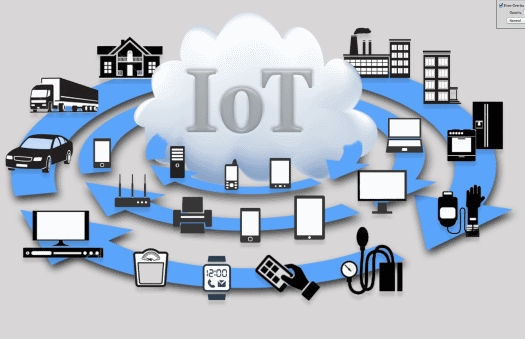“We want an IP address for everything, and we want it now” – it could be a placard for a mob looking to have equality for every Internet connected item. We gave this idea the name the Internet of Things or IoT. It seems to be the way technology is moving whether it’s good or bad. Right now, we think that it’s about devices, but what’s to stop it from being more than that? It could be for tracking people who are sensor equipped. The IoT could easily have trillions of everyday items connected to the ethereal sounding, cloud computers with embedded sensors and actuators in machines and physical objects. This IoT allows businesses and public-sector organizations to manage assets, optimize performance, and create new business models. Sounds good so far.
According to McKinsey Global Institute, the connecting of things will transform life and business and has the potential to create an economic impact between 2.7 and 6.2 trillion dollars by 2025. (For more information see Disruptive technologies: Advances that will transform life, business, and the global economy). The report identifies twelve technology areas, including the IoT, with the potential for massive impact on how people live and work, and on industries and economies. It also attempts to quantify the potential economic impact of each technology across a set of promising applications.
We are going down a path that will snowball faster and faster, transforming white goods, automobiles, and thermostats, to smart devices that will optimize energy usage via sensors and microprocessors (see Power management for the IoT). Engineers are already designing for the next wave of connected products, and thinking about the possibilities after that.

How do you know if you need to connect and ‘smarten up’ your home or business? It begins with your products, data, and sensors and then figuring out what you can do with the information collected. For businesses, it starts by building on the infrastructure already in place, using familiar devices and services in new ways, and combining the data you are already collecting to ultimately help you make better-informed business decisions.
All this sounds fantastical, the connection of everything for the benefit of business and ergo, mankind. We all know that this is not how things really end up working. So we need to think things through. What should/shouldn’t be connected? What protections do we need to think about? For example, connected remote machines that are able to take actions without a human operator could end up badly. We also need to involve policy makers so they understand these disruptive-type technologies and how they can affect economies and societies, both locally and globally over the next decade or more. Additionally, we need technology standards to control development and expectations of products (fortunately, that is already starting with the likes of Intel and Samsung).
Businesses have needs that enable them to be in position to succeed with the right products and services before they are actually needed. Companies need to understand the competitive advantages and shortcomings from the IoT technology now and in the future. This point leads to idea that our educational system also needs to be ready to support the changing roles of what skilled workers need to know and perhaps means that companies need to get into the business of training to keep employees current.
There is no doubt that our global society is on the cusp of making some very significant changes to the way we work and even play. Hopefully, we don’t make all our decisions based solely on money but have the fortitude to make the tough decisions on what is best for all. What could go wrong with that?
Advertisement





